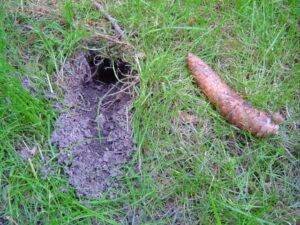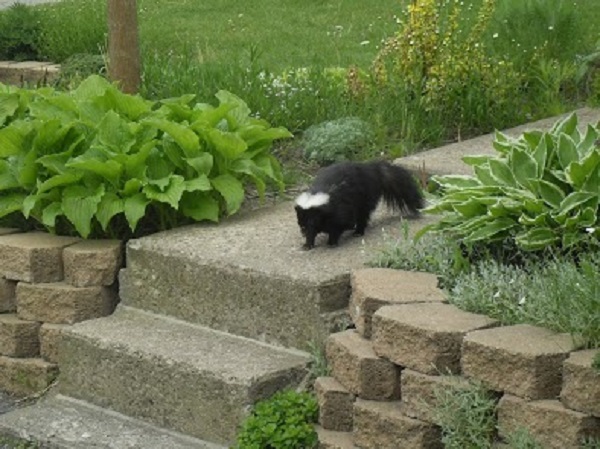Skunks are extremely adaptable creatures and, if they have access to food, water, and shelter, they can easily thrive and multiply in both rural and urban areas. Though not typically aggressive, skunks can cause considerable damage to your yard and home. Moreover, because they’re “lazy” animals, to put it nicely, they are more than happy to make their dens in garages, under porches, in sheds, and around other dark enclosures of a home if it means easy access to food and water. Such close proximity may put you and your family at an increased risk for spraying or even an attack. If you suspect these animals live on your property, contact our humane skunk removal team in Ottawa right away.
The Typical Skunk Habitat
Skunks are highly adaptable creatures. They can live anywhere there is a steady food and water supply within a mile or two. From forests to prairies and from grasslands to developed cities, no habitat is off-limits for these wily creatures.
Once skunks find a suitable habitat, they begin to create a den. Sometimes, this entails digging up your yard. Other times, it may involve hiding in rock or woodpiles. If a mother skunk cannot find a natural den site, it may take up residence in your drain pipes, culvers, under your porch, or foundation. Not only will it stay there to rest and hide but it also may birth litters and raise baby skunks in its new home.

The Family Structure
If a skunk family takes up residence on your property, count on it sticking around for a while. Skunks give birth to an average of five to six babies in late spring. The kits then nurse for seven to eight weeks, by which time their musk glands are fully functional. Unlike many other wild animals, the young do not disperse immediately after weaning from their mothers. Rather, they stick around for almost a year, leaving to start their own dens the next spring.
Habits of Solo Skunks
If a skunk is not expecting a litter, its residence at any given den is not long. From early spring until late fall, skunks migrate from den to den every few days or so. Other than possibly digging a few holes in your yard and getting into your trash, damage from skunks is not usually cause for concern. For this reason, the best course of action is to wait out their stay until they move on.
Excluding Skunks
If your home attracts an expecting mother skunk, our skunk removal Ottawa team recommends waiting until the baby skunks leave the den to take exclusion measures. Exclusion measures involve making your home and property as uninhabitable for wildlife as possible.
The first thing you can do is to remove any available food sources. Those include trash, pet food, livestock feed and bird food. If you keep your trash outside, place it in a metal container that you can lock shut. Clean up any spilled pet food, and put leftovers back in the container or in the trash.
To protect your lawn, place chicken wire over it for a few days. Invest in motion-activated lights, which makes your yard a less desirable place to forage at night. If you find the skunk’s den, make sure it has moved on before sealing off the entrance.
Removing Skunks From Your Property
If it bothers you to have skunks on your property or if they cause an unusual amount of damage, do not attempt to remove them on your own. Doing so can trigger their natural instinct to protect themselves, which is to spray. Instead, contact the humane skunk removal team at Skedaddle; we are familiar with skunk habits and safe, effective removal techniques. Our team can also seal off your home and advise you of what additional measures you can take to protect your home against future visitors. To learn more about how we can help you, contact our team today.





